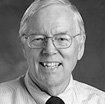Listening to our People
In a section titled “Thou Shalt Not Bore,” O. C. Edwards, Jr., writes, “When you come right down to it, the idea that the most exciting message the world has ever heard can be presented in a way that makes it sound old hat and dull is mind boggling.” (Elements of Homiletic, (New York: Pueblo, 1982) 102.)
The most frequent comment I hear from laypeople, particularly young persons, is that sermons are boring. Did Søren Kierkegaard see 155 years into the future when he wrote in Either-Or, “Boredom is the root of all evil”? It seems to be at least near to the root of preaching problems today!
Why is this? I have an uneasy suspicion that we homiletic teachers are not the right persons to teach preaching. We’re in the business ourselves, and we think like preachers, not like people in the pews. Pastors also, with their theological and exegetical training and ways of thinking, tend to deal with texts quite differently than the listener in the pew. We preach what we hope are good sermons, but our perspective is so different from our listeners’ perspectives that the sermon misfires. To get beyond myself and to help young preachers, I listen a lot to laypersons talk about preaching. These are, after all, the people we preach to, and they are our real teachers.
I spent a month in a congregation that numbered among its members several retired pastors and a couple religion professors. The pastor was a thoughtful, reflective preacher who spent much time in sermon preparation. His theological insights were invariably right on target. The pastors and professors thought his sermons were excellent. Yet the young persons I knew in the congregation invariably made comments like: “I didn’t know what he was talking about.” “I couldn’t follow the sermon.” “It didn’t have anything to do with me.”
With this in mind, what other factors about preaching must we attend to? Trained as we are to do sound exegesis, make sense theologically, and connect the biblical message with the lives of our people, what more do we need to do to preach effectively?
Non-Verbal Factors
“If they’re redeemed, why don’t they look redeemed?” commented that most unhappy young man Friedrich Nietzsche. He was the son of a Lutheran pastor, so he must have listened to many of his father’s sermons. Was there something about that preaching that was a factor in the agonized and tortured spirit of young Friedrich, leading to the disillusionment and finally cynicism he expressed about the Christian faith? Given the German system of theological education, we can probably assume that Pastor Nietzsche’s theology was in order. Were his sermons delivered with joy, verve, and energy? Were the listeners’ hearts uplifted with the glorious good news of Jesus? Why did Friedrich miss all that? Why didn’t Friedrich see redemption in the eyes, faces, and lives of the people around him? We’ll never know, but Friedrich’s comment should haunt us preachers.
Modern communication theory tells us that messages are conveyed as much by non-verbal factors as by the actual words spoken. We all know this, but we preachers don’t accept this conclusion gladly. At the heart of our theology of preaching is the belief that the word proclaimed carries its own power, not dependent upon our preaching or public speaking skill. It is God’s Spirit that produces the effect of the spoken word, not the personality of the preacher. I believe this too, but preaching is more complex than this simple assertion. There is an incarnational aspect of preaching that ties the words spoken to the speaker. The effect of preaching is the Spirit’s work, but the preacher makes a difference.
Thomas Long, a Princeton professor, writes that we think of preachers as heralds (announcing good news), pastors (dealing pastorally with people’s concerns), and storytellers (relating the biblical story to our life stories). To these he adds “witness.” A witness bears testimony, but the words must be credible to the listener. The person of the witness is tied to the testimony given. “The testimony is not merely one of words but rather demands a total engagement of speech and action….The court has access to the truth only through the witness. It seeks the truth, but it must look for it in the testimony of the witness. The very life of the witness, then, is bound up into the testimony.” (Thomas G. Long, The Witness of Preaching (Louisville: Westminster/John Knox, 1989) 42-43.)
This is not a new idea, but an echo of one of the first American textbooks on preaching. In his famous 1877 Yale lectures, Phillips Brooks coined the term “truth through personality” as a definition of preaching.
Lutherans and many other Christians tend to become very nervous with this sort of talk, as if the effect of the sermon would depend on the preacher’s craft rather than the message itself. It is the word and the Spirit that changes the hearts of the listeners. Yet a witness must give testimony as faithfully and effectively as possible, and we must attend to the broad complexity of the task of preaching. No one suggests that we assume some kind of saccharine-sweet mien in the pulpit, but it does mean that we ask ourselves if our voice, the expression on our face, and the energy of our delivery are consistent with the testimony of our words.
After a few months in my first parish, my wife asked me why I seemed to dislike preaching. I told her that I looked forward to preaching. I didn’t think more of her comment until I saw myself on video preaching, and I was appalled how serious I looked, downright glum. I was happy to be a Christian, but nobody would have known it watching me preach. I could have preached on the joy of being Christian, but I certainly didn’t look redeemed or joyful.
Speech teachers know that when we’re nervous we looked strained. It was quite natural that I looked grim, because I was nervous, but the congregation didn’t know that. They simply saw somebody who didn’t look as if he enjoyed preaching or even liked being in church at all. It was a sobering lesson.

